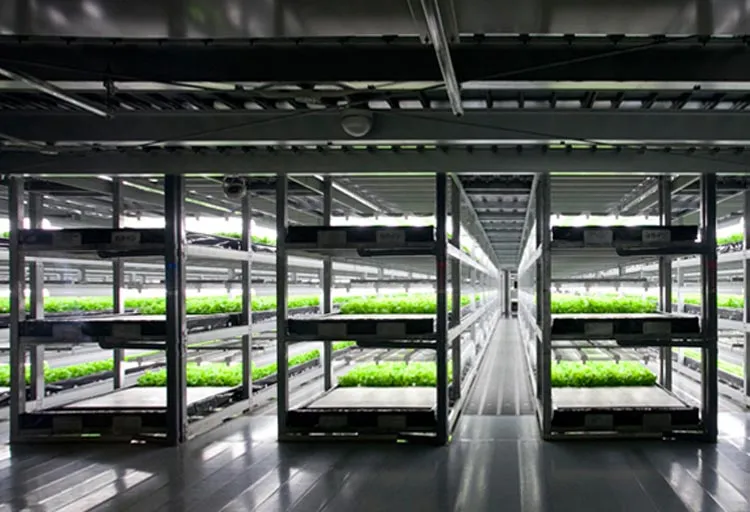The world’s largest indoor farm is not the only firm developing vertical agriculture. Japanese company Spread plans to grow more than ten million heads of lettuce a year by replacing its human farmers with robots by 2017.
The machines will automate every step of the planting process: seeding, germination, harvesting, delivery, and even monitoring levels of carbon dioxide and lighting conditions. Unlike Prospero, a swarm of bots made to optimize every inch of arable space in a field, Spread's robots work indoor. The construction works of the fully automated vegetable factory in Kizugawa (Kyoto) are scheduled to being in spring next year and should be completed by the following summer, with shipments beginning in the second half of 2017.
Taking the place of human farmers, the futuristic site will be controlled by robots. In this way the company expects an increase in the production by almost 25 per cent, and a drop in labor costs to provide a cheaper final product to consumers.
The key benefit in these urban farming efforts is that they are more efficient than traditional open field agriculture, because they are not susceptible to changes in weather or other environmental conditions. The crops can also be protected from food contamination and pesticides and can be more closely monitored for disease and other issues. Living and producing more efficiently has always been one of the greatest things humans have done in order to support the burgeoning population. As we continue to be more efficient, nature is reclaiming more of the surface of the earth.
Source: Daily Mail


Comments (0)
Share your thoughts and join the technology debate!
No comments yet
Be the first to share your thoughts!